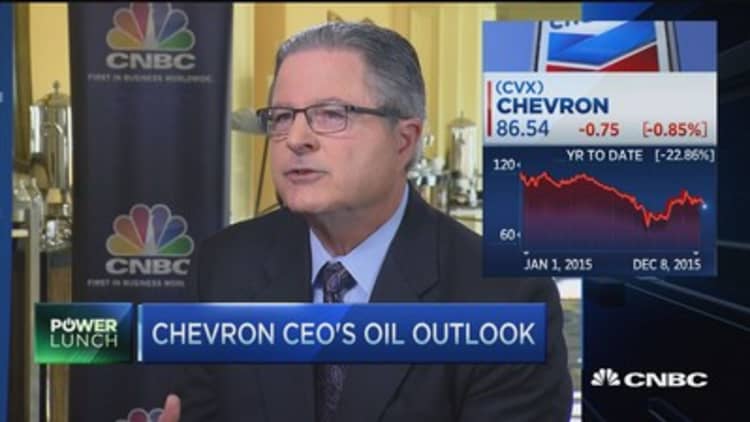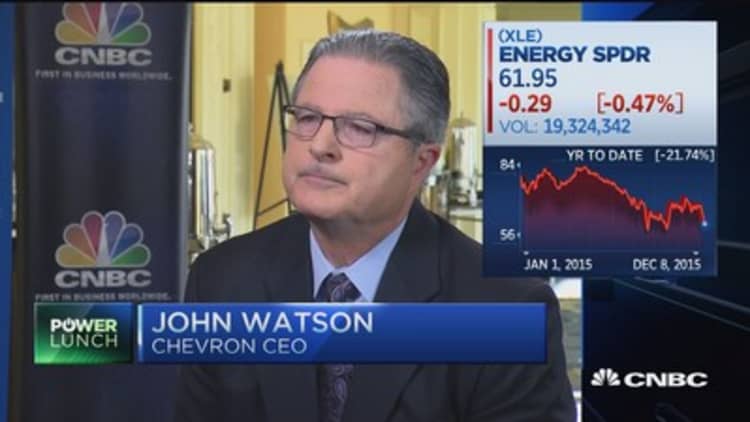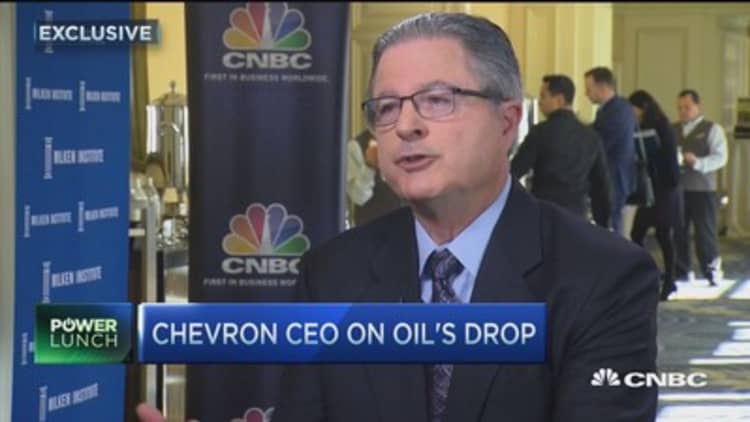


Oil prices will likely climb in the next year as supply and demand in the market begin to even, Chevron CEO John Watson said Tuesday.
"We've got a slight imbalance in demand and it's going to take some time to work that off," he told CNBC's "Power Lunch."
Watson did not give a specific price projection for crude, but he noted the oil giant has prepared to "live with whatever prices the market gives." He cited Chevron's plan to cut capital spending by 25 percent in 2016, with further reductions expected in the following years.
Chevron shares have fallen more than 20 percent this year amid a prolonged stretch of lower oil prices, driven partly by an imbalance between production and consumption. Prices of WTI and Brent crude have each plunged nearly 40 percent this year.
"This is a very turbulent time in our business," Watson said, noting the oil industry is "producing more than we need."
In late October, Chevron reported diluted third-quarter earnings of $1.09 per share, down from $2.95 a share in the previous year. It joined other energy companies in outlining broad cost-trimming in the coming years, including cutting 6,000 to 7,000 jobs.
Watson believes the sector's capital spending rollback will eventually lead to production falling. He stressed that expense cuts will not affect Chevron's ability to pay its divided, which he called the "No. 1 priority."
The latest hit to oil prices came on Monday, when U.S. crude futures plunged nearly 6 percent after Friday's meeting of OPEC. The cartel failed to agree to a production ceiling.
Collective action to curb output by OPEC seems "unlikely," Watson contended.




